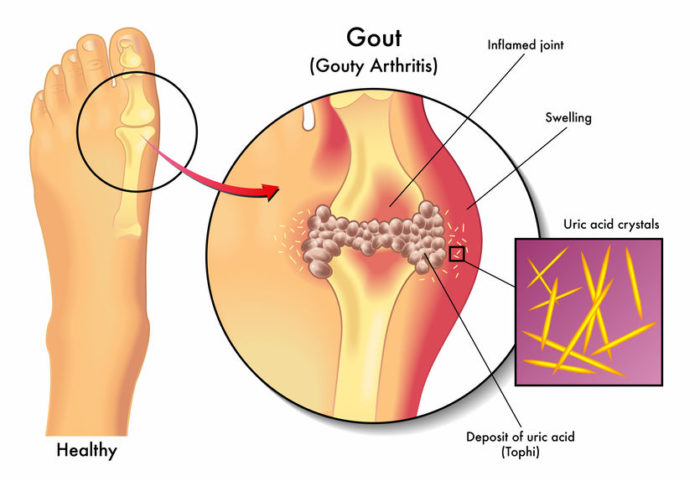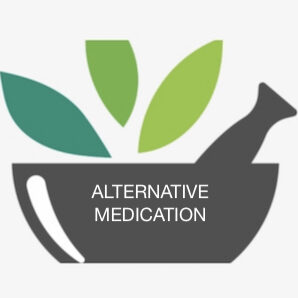
What Is Gout?
Gout is a common form of inflammatory arthritis that is very painful.
In inflammatory arthritis Gout is characterized by severe pain, redness, and tenderness in joints.
Gout Symptoms
The signs and symptoms of gout almost always occur suddenly, and often at night. They include:
Intense joint pain
The pain is likely to be most severe within the first four to 12 hours after it begins.
Lingering discomfort
After the most severe pain subsides, some joint discomfort may last from a few days to a few weeks.
If gout does not remain in remission later attacks are of Gout are likely to last longer and affect more joints.
Inflammation and redness
The affected joint or joints become swollen, tender, warm and red from Gout.
Range of motion
Inflammation from Gout may limit range of motion.
Gout Flares Gout flares usually occur in one joint. They can be triggered by certain foods;
- Alcohol
- Certain medications
- Physical trauma
- Certain illnesses
Gout flares typically get better over a week or two.
If gout flares are left untreated, flares may last longer and happen more often.
Some people with gout may be more likely to develop other conditions or complications, especially with the heart and kidneys.
Gout Diet
Reducing the amount of uric acid levels in the blood can help to prevent gout attacks.
- Limiting alcohol
- Avoiding/reducing foods high in purines
- Drinking plenty of fluid
- Limiting foods sweetened with fructose
- Eating plenty of fruit and vegetables
- Consume low-fat dairy products
What Are Purines?
Purines are substances in animal and plant foods that your body converts to uric acid.
If you are not able to flush the uric acid out through your kidneys, it can build up in the bloodstream and be deposited as needle-shaped crystals in your joints.
These crystals cause the severe inflammation and intense pain of a gout attack.
Gout Treatment
You may to take medications to manage the cause of your gout and treat active gout flares.
Nonprescription Medicines
NSAIDs help reduce pain and swelling in the joints during a gout attack. Ibuprofen and naproxen are two popular medications.
If you take NSAIDs in the first 24 hours, it can help shorten the attack.
You may reduce the gout pain with ice, rest, and raise the joint.
Gout Prescription Medicines
Your doctor may recommend one of the following prescription medications:
- Allopurinol (Aloprim, Zyloprim)reduces uric acid production.
- Colchicine (Colcrys, Mitigare) reduces inflammation.
- Febuxostat (Uloric) reduces uric acid production.
- Indomethacin (Indocin, Tivorbex) is a stronger NSAID pain reliever.
- Lesinurad (Zurampic) helps your body get rid of uric acid when you pee.
- Pegloticase (Krystexxa) breaks down uric acid.
- Probenecid helps the kidneys excrete uric acid from your body.
- Steroids (also called corticosteroids) fight inflammation.
Changes to your diet and lifestyle may be needed.
Drink lots of water, stay away from sugary drinks, exercise, avoid alcohol especially, beer.














